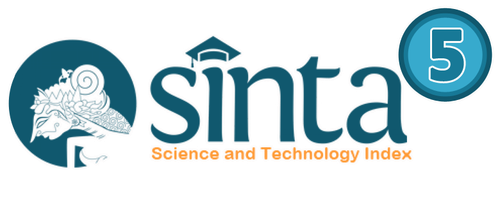READING COMPREHENSION DIFFICULTIES IN INDONESIAN EFL STUDENTS
DOI:
https://doi.org/10.47080/jeltl.v6i1.2477Keywords:
Reading comprehension, Reading Difficulties, Reading StrategiesAbstract
Getting knowledge by reading is one of the prominent ways, and reading comprehension is a skill to help students in learning process. In fact, there are many EFL students have some difficulties in reading comprehension. The objective of this study is to analyze the students’ difficulties in reading comprehension skills. Descriptive qualitative method is used in this study, and by using purposive sampling, 98 students of Basic Reading Class at English Education Program in University of Indraprasta PGRI were engaged. The data collected by administering the questionnaires, then it was analyzed to find out what kind of the difficulties faced by EFL students in reading comprehension. The questionnaires were administered in collecting the data, and it was analyzed descriptively to know what kind of reading comprehension difficulties faced by EFL students. According to the results, the most reading difficulty faced by the students are distinguishing between main ideas and supporting details, getting main idea between paragraphs, the topic of the texts from other culture, relating topic and background knowledge, understanding vocabulary and inferring the text. Based on these findings, some reading strategies should be applied to figure out these barriers in reading comprehension skills.
Downloads
References
Al-Jarrah, H., & Ismail, N. S. B. (2018). Reading Comprehension Difficulties Among EFL Learners in Higher Learning Institutions. International Journal of English Linguistics, 8(7). https://doi.org/10.5539/ijel.v8n7p32
Alsamadani, H. A. (2012). Reading Strategy Instruction in Saudi Schools. Journal of Language Teaching and Research, 3(5). https://doi.org/10.4304/jltr.3.5.829-837
Banditvilai, C. (2020). The Effectiveness of Reading Strategies on Reading Comprehension. International Journal of Social Science and Humanity. https://doi.org/10.18178/ijssh.2020.v10.1012
Dara, D. (2019). Investigating English Reading Comprehension Problems of Cambodian High School Students. American International Journal of Social Science, 8(3). https://doi.org/10.30845/aijss.v8n3p8
Ekorini, P. Z. (2020). Analysis On Students’ Difficulties of Finding Main Idea of A Passage. Dharma Pendidikan, 15(2).
Hall, C., Vaughn, S., Barnes, M. A., Stewart, A. A., Austin, C. R., & Roberts, G. (2020). The Effects of Inference Instruction on the Reading Comprehension of English Learners With Reading Comprehension Difficulties. Remedial and Special Education, 41(5), 259–270. https://doi.org/10.1177/0741932518824983
JALA, G. (2020). Pupils’ Reading Comprehension, Problem-Solving Skills and Academic Performance. Journal of World Englishes and Educational Practices. https://doi.org/10.32996/jweep.2020.2.4.1
Kendeou, P., Muis, K. R., & Fulton, S. (2011). Reader and text factors in reading comprehension processes. Journal of Research in Reading. https://doi.org/10.1111/j.1467-9817.2010.01436.x
Kheirzadeh, S., & Tavakoli, E. (2012). The Causes of Reading Difficulty: The Perception of Iranian EFL Post-graduate and Under-graduate Students. Journal of Language Teaching and Research, 3(1). https://doi.org/10.4304/jltr.3.1.147-152
Lenchuk, I. (2020). Reciprocal teaching as an instructional strategy for identifying reading literacy problems: A case study of an omani efl classroom. International Journal of English Language and Literature Studies, 10(1). https://doi.org/10.18488/JOURNAL.23.2021.101.1.10
Nassaji, H. (2015). Qualitative and descriptive research: Data type versus data analysis. Language Teaching Research, 19(2), 129–132. https://doi.org/10.1177/1362168815572747
Par, L. (2020). The relationship between reading strategies and reading achievement of the EFL students. International Journal of Instruction, 13(2). https://doi.org/10.29333/iji.2020.13216a
Perfetti, C., & Stafura, J. (2014). Word Knowledge in a Theory of Reading Comprehension. Scientific Studies of Reading, 18(1). https://doi.org/10.1080/10888438.2013.827687
Qrqez, M., & Rashid, R. (2017). Reading Comprehension Difficulties among EFL Learners: The Case of First and Second -Year Students at Yarmouk University in Jordan. Arab World English Journal, 8(3). https://doi.org/10.24093/awej/vol8no3.27
Riadil, I. G. (2020). Investigating EFL Learners ’ Reading Comprehension Problems and Investigating Efl Learners ’ Reading Comprehension Problems and Strategies. Jelltt, 4(April), 48–58. https://jurnal.unigal.ac.id/index.php/jall/index%0AJALL
Richards, J. C. (2001). Curriculum Development in Language Teaching. In Curriculum Development in Language Teaching. https://doi.org/10.1017/cbo9780511667220
Satriani, E. (2018). Reading Comprehension Difficulties Encountered by English Students of Islamic University of Riau. J-SHMIC : Journal of English for Academic, 5(2). https://doi.org/10.25299/jshmic.2018.vol5(2).1885
Thao, T. Q., & Tham, D. M. (2018). THE DIFFICULTIES IN ESP READING COMPREHENSION ENCOUNTERED BY ENGLISH–MAJORED STUDENTS. VNU Journal of Foreign Studies, 34(2). https://doi.org/10.25073/2525-2445/vnufs.4253







